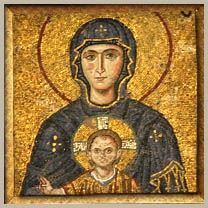here are some more images of my life-sized bronze statue of Diana with her two dogs, as well as the bronze Tritons that copy originals in Piazza Navona -Rome







CHAPTER 20
THE PRIEST
WE passed the year much as usual, only going to Moscow for Easter.
On our return to Tsarskoe Selo the Empress manifested symptoms of whooping cough. I t speedily spread to the nurseries and the four children. The Russian nurse and I contracted it. I had told the children they were to be most careful not to cough on anyone, or that person might take the disease from them, and they were very obedient. One day the little Grand Duchess Anastasie was sitting in my lap, coughing and choking away, when the Grand Duchess Marie came to her and putting her face close up to her said, "Baby, darling, cough on me." Greatly amazed, I asked her what she meant, and the dear child said, "I am so sorry to see my dear little sister so ill, and I thought if I could take it from her she would be better." Was it not touching?
But all things come to an end, even whooping cough, and one day when we were all well I went up to town to do some shopping. I was talking to the proprietor when a priest came in. He asked for what he wanted and then turned to me and said, "I heard your voice when I came in, and am sure you are a compatriot of mine. You are Irish, are you not?"
I answered his question in the affirmative, and he said he knew, and asked my name and from what part I came. He himself came from the same part, and knew some of my family.
He told me that though he was an Irishman his work lay in Glasgow, in the poorest and worst part of that town, down by the docks. From time to time poor Poles came to live in his parish, and he was sometimes called up to administer the sacraments to them, but owing to their mutual inability to understand each other, he could do little for them.
Out of pity for them, thus cut off from all religious comfort, he had undertaken to travel to Poland, and try to get into communication with the priests there, to get them a supply of prayer-books, catechisms, and other religious books which might be a help and solace to them in a far country in times of distress.
When I returned I told the Empress of his care over his flock. She begged me to thank him in her name for his care of and love for her poor Polish subjects, should I ever see him again. I am sorry to say I omitted to ask him his address. The Empress's words might have encouraged him in his task.
Should he by any chance see these words I take the opportunity of giving him the Empress's message, and of telling him that I have so often thought of and prayed for him, that God would bless him in his work. He is a good man.



